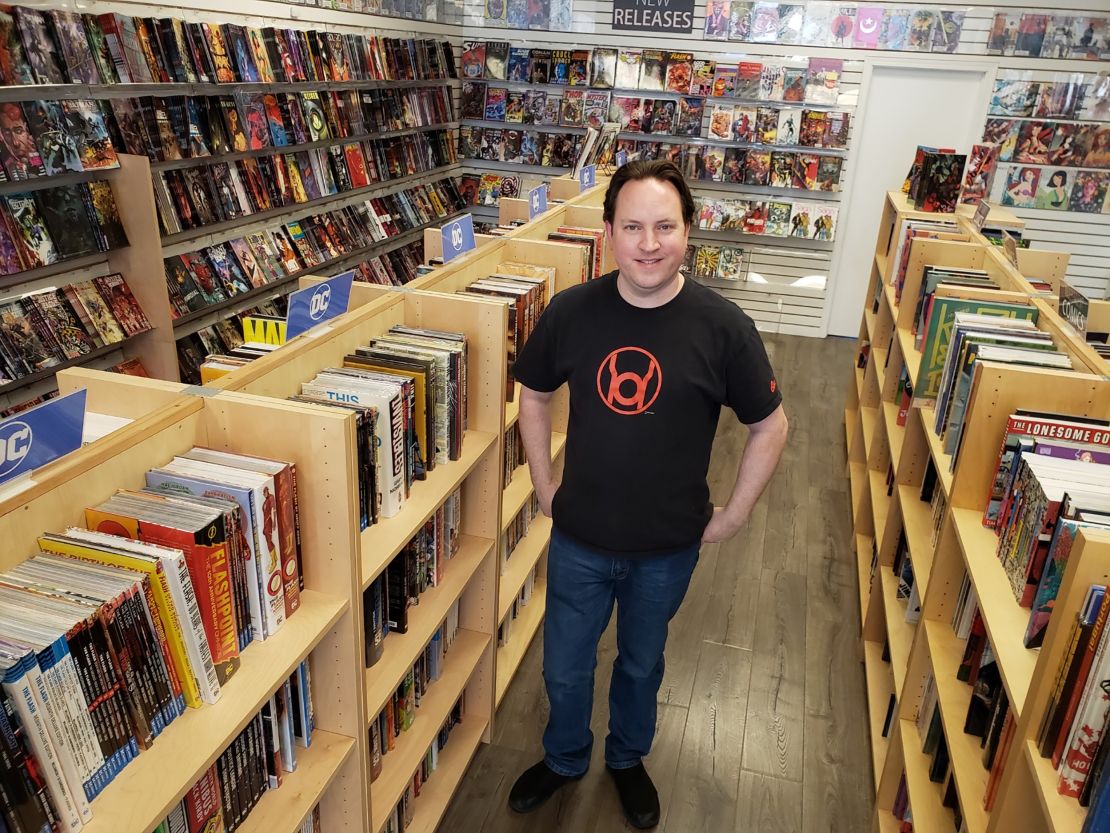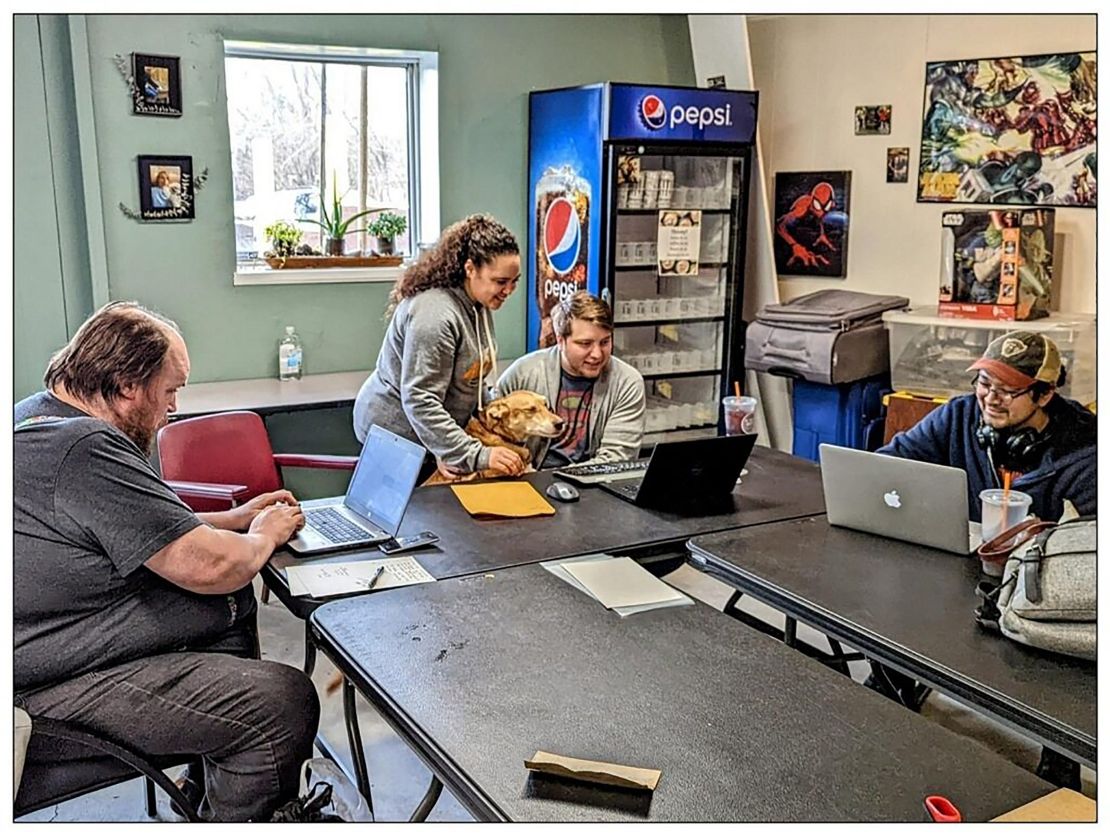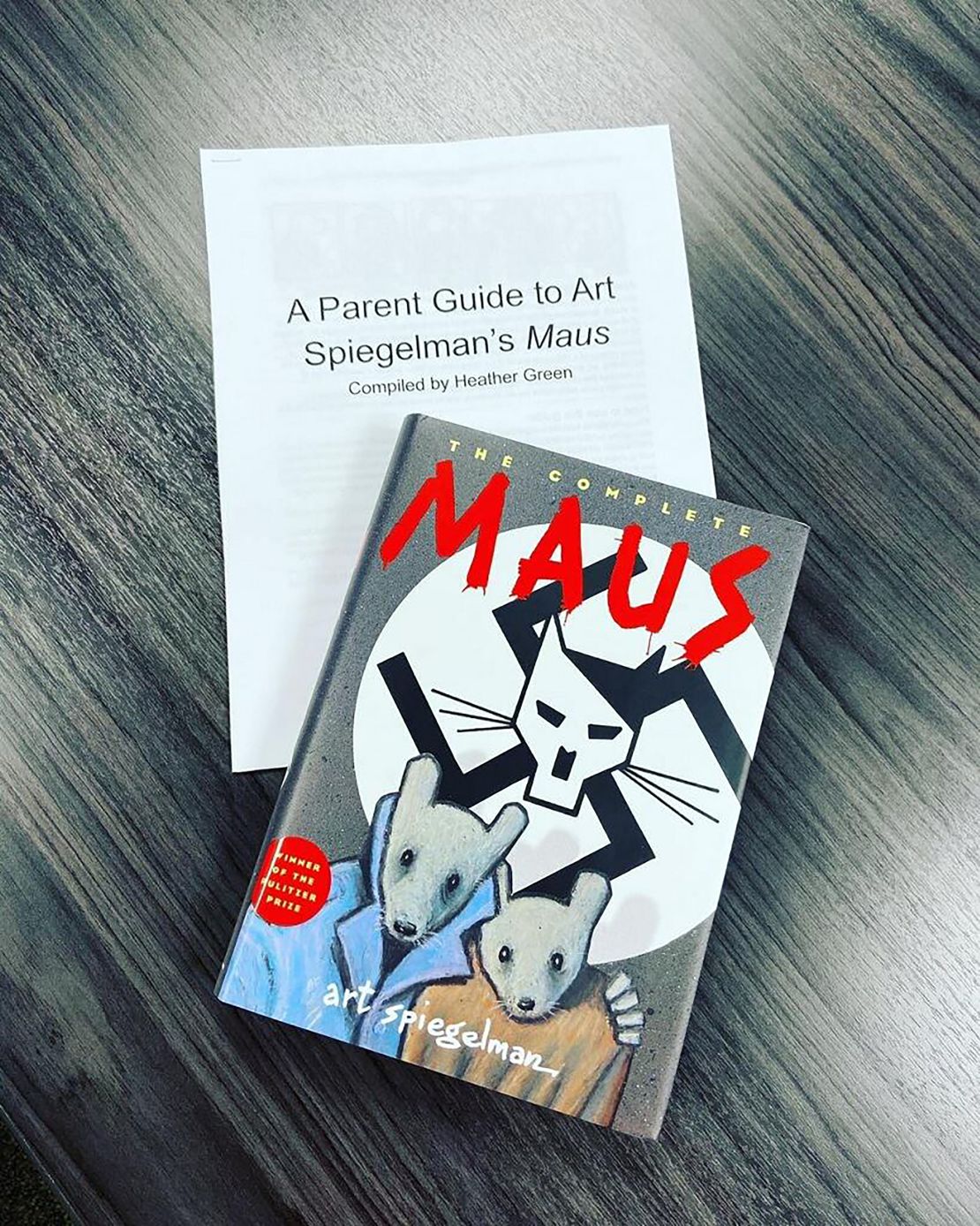After a Tennessee school board banned a graphic novel about the Holocaust from local middle schools, comic book store owners from near and far pledged to send students the book for free.
The Pulitzer Prize-winning graphic novel “Maus” was banned on January 10 after a unanimous vote by the McMinn County, Tennessee, Board of Education.
Written by Art Spiegelman, “Maus” tells the story of his parents in the 1940’s, following the Jewish family’s experience with rising anti-Semitism to their internment at the Auschwitz concentration camp. It depicts the Jewish people as mice and Nazis as cats.
The novel was removed for “unnecessary use of profanity and nudity and its depiction of violence and suicide,” the education board said in a statement, adding the work “was simply too adult-oriented for use in our schools.”
Support from 2,400 miles away
News of the “Maus” ban upset comic fans across the nation.
In California – some 2,400 miles away from McMinn County – Ryan Higgins had a plan.
Higgins owns Comics Conspiracy in Sunnyvale, a city around 40 miles south of San Francisco. On January 26, a day before Holocaust Remembrance Day, Higgins tweeted that he would donate 100 copies of the book to families in McMinn county.
“Just DM me your address!” Higgins wrote.

CNN’s own Jake Tapper retweeted his offer, and it took off from there, Higgins told CNN on Tuesday.
As of Tuesday evening, his tweet has over 12,000 likes and more than 3,000 retweets.
“Our phone has been ringing off the hook with endless support,” Higgins said.
The few copies of “Maus” Higgins had in stock at the store sold out immediately, he said, and a reorder should arrive Friday. Higgins plans to send them out shortly after.
“This is not a book that’s all about pornography and violence,” he said. “It teaches these kids about the horrors of the Holocaust in a more palatable way than some pictures that are just horrific.”
Higgins said he first read the book when he was a teenager. “It’s more than just a comic book,” he added. “Reading it, I was pretty blown away.”
Last week’s viral tweet wasn’t the first time Higgins has tried to help out faraway students.
In December, he tweeted out a similar offer after a Texas school district banned the novel “V for Vendetta” and the series “Y: The Last Man”.
Local comic shop turned lending library
McMinn students have also received similar offers from comic lovers a little closer to home.
In Knoxville, just north of McMinn County, the Nirvana Comics shop announced it would loan copies of “Maus” to local students.
Rich Davis, who co-owns the store with Grant and Jasmine Mitchell, told CNN the original plan was to let students borrow the 10 copies they had of the graphic novel.
But as news of the program spread across social media, the plans had to become a bit bigger.
“The program has grown from a small lending library in our store, to the point where we will be able to provide well over 1,000 books all over the country,” Davis said.
A Go Fund Me to raise money so the store can purchase more copies of “Maus” has raised over $95,000 as of Tuesday, exceeding their original goal of $20,000.

Davis said they’re prioritizing shipping the novel to Tennessee students – particularly those in McMinn County.
The store includes a 10-page study guide put together by local high school English teacher Heather Greene with every shipment. Davis said the guide is meant to help parents discuss the subject matter with their children.

Nirvana Comics sent out around 50 copies of the book on Tuesday and are waiting for 1,000 more copies to come in. The novel’s distributor, Penguin Random House, has been overwhelmed with demand for the novel, according to Davis.
“‘Maus’ is not the only way to teach children about the Holocaust, but I think it’s the most effective and accessible,” Davis said. “The images in the book are nowhere near as disturbing as pictures from Auschwitz or other concentration camps.”
Davis said he sobbed the first time he read it and to this day, he can’t read it without crying.
“It should be required reading for everybody,” Davis added. “If we don’t show them what the Holocaust was, the next generation may think it wasn’t so bad, and then the next generation may think the Holocaust didn’t happen, and then the next generation is repeating the Holocaust.”


